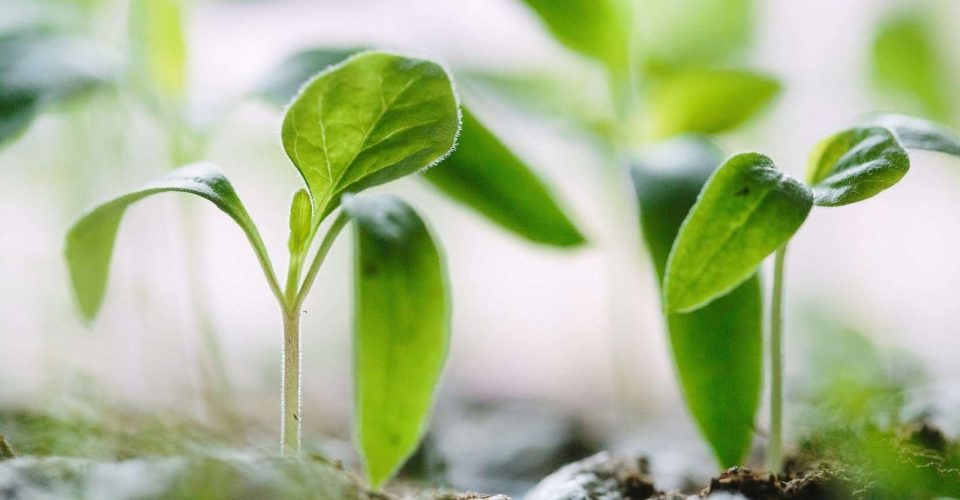Similarities, differences, and how they contribute to an abundant Earth.
Ideas and conversations about making the planet more healthy and abundant are all around us, which is fantastic. With those conversations, though, come terms—lots and lots of often confusing terms. We want to make sure that everyone can participate in the content, conversations, and projects that contribute to a healthy earth, so we’ve broken down what a few of the most common terms mean:
- Regenerative Agriculture
- Permaculture
- Organic Agriculture
We hope that the quick guide provided below can be the beginning of a rich and in-depth learning journey on what is one of the most exciting topics of our time!
Regenerative Agriculture
At its core, regenerative agriculture refers to an approach to land management that leaves the space stronger, better, more healthy, and more interconnected than when it was first acquired for use.
Regenerative agriculture refers to an approach to land management that leaves the space stronger, better, more healthy, and more interconnected than when it was first acquired for use.
Regenerative agriculture asks farmers, scientists, property owners, and others who control portions of land, to leave the land better than they found it. Like our friends at the Regenerative Agriculture Foundation like to say, regenerative agriculture also encompasses, “any practice that makes the land, community and bottom-line healthier year after year is regenerative.”
Within the broader “Regenerative Agriculture” umbrella, there are specific ways to care for and regenerate specific portions of the land. For example, one of our favourite experts, Geoff Lawton, provides a helpful explanation that is specific to soil health. Lawton defines regenerative agriculture as, “a general term for farming in a way that repairs the soil and adds more carbon to the soil, repair[ing] the landscape. Regenerative agriculture can also be thought of as sort of a generalized reference term about agricultural land use. This definition has a focus on soil health.”
Permaculture
Permaculture is focused on attempting to ensure that all systems–food, culture, and more–are focused on sustainability and beneficial interconnectivity.
Permaculture is a term that many are vaguely familiar with, but what does it actually mean? At its heart, permaculture is focused on attempting to ensure that all systems–food, culture, and more–are focused on sustainability and beneficial interconnectivity. The term permaculture also refers to a diverse set of tools, systems, and agricultural practices that are focused on building things with sustainability and antifragility.
Our friend Geoff Lawton considers the term permaculture to refer to “a holistic design science that specializes in connectivity between disciplines [with a] focu[s] on sustainability and self-sufficiency.” He has developed a set of ethics that he thinks should guide any conversation under the umbrella of permaculture. These include:
- Earthcare. This refers to taking care of living and nonliving things locally and globally.
- People care. This places an emphasis on self-reliance, community responsibility.
- The return of surplus. This is the overflow that results from earth care and people care and allows for the results (resources, soil health etc.) to be reinvested for people and the world’s benefit!
Organic Agriculture
The term organic agriculture places an emphasis on locality and the actual health of soil, ecosystems, and the cultivation of whole, resilient and interconnected systems. Oftentimes, participants are encouraged to avoid unnatural soil additives and inputs like fertilizers.
We appreciate the Food and Agriculture Organization’s definition of organic agriculture:
“Organic agriculture is a holistic production management system which promotes and enhances agro-ecosystem health, including biodiversity, biological cycles, and soil biological activity. It emphasizes the use of management practices in preference to the use of off-farm inputs, taking into account that regional conditions require locally adapted systems.”
Organic agriculture places an emphasis on locality and the actual health of soil, ecosystems, and the cultivation of whole, resilient and interconnected systems.
Bringing it all together
While each definition and term is unique and useful in its own way, we view them as interrelated tools that help individuals and organizations to enlarge the conversation about regenerating our earth and developing an antifragile future.
Visit the 5th World blog to learn more about these and other regenerative topics.



